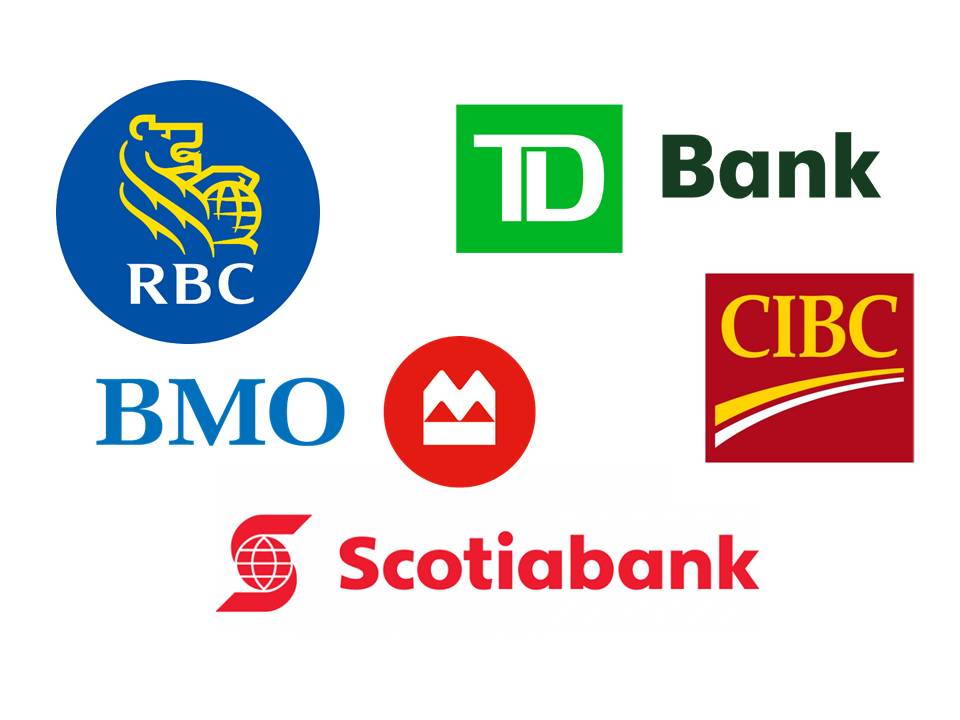Canada Travel Restrictions Update
Canada’s travel restrictions update have been gradually lifted over the past few months, but it is important to stay up-to-date on the latest changes. As of August 13, 2023, fully vaccinated travellers can enter Canada without quarantine. However, they may still be randomly selected for testing. Unvaccinated travellers are still not permitted to enter Canada, except for certain exemptions.
Advertisement
The government of Canada is carefully monitoring the situation and may impose new travel restrictions if necessary. However, the current trend is towards lifting restrictions as the pandemic subsides.
Overview Of Current Travel Restrictions Update In Canada
Canada has implemented various travel restrictions in response to the ongoing Covid-19 pandemic. These restrictions are in place to ensure the safety and well-being of both residents and visitors. If you are planning on traveling to Canada, it is essential to stay informed about the current travel restrictions to avoid any inconveniences or potential complications.
Currently, Canada has implemented strict international travel restrictions. Non-essential travel is strongly discouraged, and there are limitations on who can enter the country. Canadian citizens, permanent residents, and their immediate family members are allowed to enter, along with a few other exempted individuals, such as essential workers and foreign nationals with valid work permits.
However, all travelers must follow certain protocols, such as completing a mandatory 14-day quarantine upon arrival.
Domestic travel within Canada is generally permitted, but there may be specific restrictions in certain provinces or territories. It is crucial to check the guidelines and regulations of your intended destination before making any travel arrangements.
Advertisement
There have been recent changes to quarantine requirements in Canada. Some provinces now offer modified quarantine options, such as shortened isolation periods for fully vaccinated travelers or testing protocols. It is essential to familiarize yourself with these changes and follow the specific requirements for your destination.
Travelers to Canada are also required to meet certain Covid-19 testing requirements. This may include pre-departure testing, as well as testing upon arrival and during the quarantine period. Make sure to check the specific testing requirements for your situation to ensure compliance.
It is important to stay updated on the latest news and updates regarding Canada’s travel restrictions. The situation is continuously evolving, and new measures may be introduced or existing ones may change. Stay connected with reputable sources, such as official government websites or reliable news outlets, to stay informed and ensure you have the most up-to-date information.
Planning travel during the pandemic can be challenging, but with the right information and precautions, you can navigate through the current travel restrictions in Canada. Stay informed, follow the guidelines, and prioritize your health and safety as you plan your trip.
International Travel Restrictions And Exemptions
Traveling internationally to Canada is currently subject to strict restrictions due to the Covid-19 pandemic. Non-essential travel is strongly discouraged, and only certain individuals are permitted to enter the country. Canadian citizens, permanent residents, and their immediate family members are allowed entry, as well as a few exempted individuals like essential workers and foreign nationals with valid work permits.
However, it’s important to note that even if you fall under one of the exempted categories, you must still follow specific protocols. Upon arrival in Canada, all travelers are required to complete a mandatory 14-day quarantine. This means you will need to have a suitable quarantine plan in place before you travel.
To ensure compliance with these restrictions, the Canadian government conducts thorough screenings at the border. They may request documentation to prove your exemption status or details of your quarantine plan. It is important to be prepared and have all the necessary documentation and information readily available.
It’s worth mentioning that these international travel restrictions can change at any time. The Canadian government regularly evaluates the situation and updates the restrictions accordingly. It’s crucial to stay informed and regularly check for any changes or updates from reliable sources like official government websites or reputable news outlets.
Before planning any international travel to Canada, make sure to review the most up-to-date information and follow the guidelines provided. Prioritizing your health and safety, as well as staying informed, will ensure a smoother travel experience.
Domestic Travel Restrictions And Guidelines
When it comes to domestic travel in Canada, there are generally fewer restrictions compared to international travel. However, it’s important to note that specific guidelines and regulations may vary depending on the province or territory you plan to visit. Before making any travel arrangements, it is crucial to check the guidelines and regulations of your intended destination.
Currently, most provinces and territories in Canada do not have strict travel restrictions in place for domestic travelers. This means that you can freely travel within the country without the need for quarantine or additional documentation.
However, it is important to remember that the Covid-19 situation can change rapidly. It is recommended to stay informed about the local guidelines and restrictions in your destination. Some provinces or territories may have their own rules and regulations to protect their residents and visitors.
To ensure a smooth and hassle-free domestic travel experience, it is advisable to follow general health and safety guidelines. These include wearing a mask in public spaces, practicing physical distancing, washing your hands regularly, and avoiding crowded areas.
Additionally, it’s a good idea to research and plan ahead for any specific requirements or limitations that may be in place in your intended destination. This could include restrictions on certain activities or attractions, capacity limitations for accommodations or restaurants, or specific guidelines for public transportation.
By staying informed and following the guidelines and regulations in place, you can enjoy a safe and enjoyable domestic travel experience in Canada. Remember to prioritize your health and safety, as well as the well-being of the communities you visit.
Changes To Quarantine Requirements
In light of the ongoing Covid-19 pandemic, Canada has recently implemented some changes to its quarantine requirements for travelers. These updates aim to provide more flexibility and options while still ensuring the health and safety of both residents and visitors.
One notable change is the introduction of modified quarantine options for fully vaccinated travelers. Some provinces now offer shortened isolation periods for those who have received their complete vaccine doses.
Instead of the traditional 14-day quarantine, fully vaccinated individuals may be required to isolate for a reduced period, such as seven or eight days, depending on the province. This is a positive development for those who have completed their vaccination schedule and can provide proof of their vaccination status.
Additionally, there may be alternative testing protocols available for fully vaccinated travelers. Instead of multiple tests throughout the quarantine period, vaccinated individuals may be required to take a test upon arrival and then undergo another test after a certain number of days. This reduces the burden of testing while still ensuring that any potential cases are detected.
It’s important to note that these modified quarantine options and testing protocols may vary by province or territory. Each region has the autonomy to determine their own requirements, so it’s essential to check the specific guidelines for your intended destination before traveling.
As with any changes during the pandemic, it’s crucial to stay informed and up-to-date with the latest information. Keep an eye on official government websites, reputable news sources, and travel advisories for any updates or changes to the quarantine requirements. By staying informed and following the guidelines, you can ensure a smoother travel experience while prioritizing your health and safety.
COVID-19 Testing Requirements For Travelers
COVID-19 testing requirements for travelers to Canada play a crucial role in ensuring the safety of both residents and visitors. As the pandemic continues, it is important to understand and comply with the testing protocols in place to avoid any potential complications during your trip.
Before traveling to Canada, it is important to be aware of the specific testing requirements for your situation. This may include pre-departure testing, testing upon arrival, and testing during the quarantine period. The type of test required, such as PCR or antigen test, as well as the timing and validity of the test results, may vary.
Pre-departure testing is often mandatory for travelers entering Canada. This means that you will need to take a COVID-19 test within a specified timeframe before your departure. The test must typically be negative, and you will need to provide documentation of your test results.
Upon arrival in Canada, you may be required to undergo another COVID-19 test. This is to ensure that you do not have an active infection and to detect any potential cases early on. Depending on the province or territory, you may be required to take a test at the airport or a designated testing facility.
During the quarantine period, you may be required to take additional tests to ensure that you remain free from the virus. These tests are typically taken on specific days during your isolation period. It is important to follow the instructions provided by the authorities and schedule your tests accordingly.
It is crucial to familiarize yourself with the specific testing requirements for your destination and follow them diligently. Failure to comply with the testing protocols may result in travel disruptions or even legal consequences. Stay updated on any changes to the testing requirements and regularly check the official government websites or reputable news sources for the latest information.
Remember, testing requirements are in place to protect everyone’s health and safety. By following the guidelines and taking the necessary tests, you can contribute to a safer travel experience and help prevent the spread of COVID-19.
Latest Updates And News On Canada Travel Restrictions
As the Covid-19 situation continues to evolve, it’s important to stay informed about the latest updates and news on Canada travel restrictions. The Canadian government regularly evaluates the situation and may introduce new measures or modify existing ones. By staying up-to-date, you can ensure a smoother travel experience and make informed decisions about your trip.
One of the best ways to stay informed is by regularly checking official government websites and reliable news outlets. These sources provide accurate and timely information about any changes or updates to Canada’s travel restrictions. Additionally, subscribing to email newsletters or following relevant social media accounts can help you receive the latest news directly to your inbox or feed.
Some recent updates to Canada’s travel restrictions include the introduction of modified quarantine options for fully vaccinated travelers. Some provinces now offer shortened isolation periods for those who have received their complete vaccine doses. Additionally, there may be alternative testing protocols available for fully vaccinated individuals.
It’s also important to be aware of any regional or provincial variations in travel restrictions. Different provinces and territories in Canada may have their own guidelines and regulations to protect their residents and visitors. Make sure to check the specific guidelines for your intended destination before traveling.
By staying updated on the latest news and updates, you can navigate through the current travel restrictions in Canada and plan your trip accordingly. Remember to prioritize your health and safety, and follow the guidelines and regulations in place. Safe travels!
Tips For Planning Travel During The Pandemic
Planning travel during a pandemic can be challenging, but with the right preparation and precautions, you can ensure a safe and enjoyable trip to Canada.
Here are some tips to help you plan your travel during the pandemic:
- Stay informed: Stay updated on the latest travel restrictions and guidelines issued by the Canadian government. Check official government websites, reputable news sources, and travel advisories regularly to ensure you have the most current information.
- Research your destination: Before you travel, research the specific guidelines and regulations in place for the province or territory you plan to visit. Some regions may have additional restrictions or requirements, so it’s important to be aware of them beforehand.
- Plan your itinerary wisely: Consider the activities and attractions you plan to visit and check if they are open or operating at limited capacity. Some popular tourist spots may require advanced reservations, so it’s best to plan ahead.
- Prioritize health and safety: Follow the recommended health and safety guidelines, such as wearing a mask, practicing physical distancing, and washing your hands frequently. Be respectful of local protocols and rules to ensure the well-being of yourself and others.
- Consider travel insurance: Look into travel insurance that covers COVID-19-related issues, such as trip cancellations or medical expenses. Review the policy details and consult with the insurance provider to understand what is covered.
- Pack essentials: Pack essential items such as face masks, hand sanitizer, disinfectant wipes, and any necessary medications. It’s always a good idea to be prepared and have these items readily available during your trip.
- Stay flexible: Understand that the situation can change rapidly, and it’s important to remain flexible with your travel plans. Be prepared for potential changes or disruptions, such as flight cancellations or sudden changes in travel restrictions.
By following these tips and staying informed, you can navigate through the current travel restrictions and plan your trip to Canada with confidence. Remember to prioritize your health and safety, and be respectful of the guidelines and regulations in place. Safe travels!




